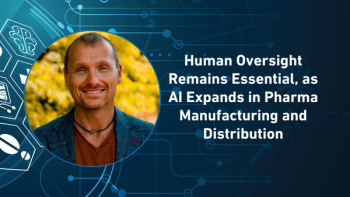Takeda and VELA Transport have now solidified a partnership.
Per this new collaboration, Takeda will reportedly become the first biopharma company to transport its treatments between Europe and the United States with the help of VELA’s sailing cargo trimaran.1 The ship’s first trip is expected by late next year.
Environmental benefits of wind-powered shipping
The new fleet of vessels is completely powered by wind when it’s at sea, providing Takeda with an environmentally friendly sea freight shipping option.
More specifically, the wind-powered vessels provides another choice for pharma industry stakeholders. In fact, an assessment shows that it can decrease use-related greenhouse gas emissions by up to 99% compared to air freight, and up to 90% when analyzed alongside container ships.1
The residual emissions stem mainly from limited engine use when maneuvering into harbors. In order to safeguard product quality, the trimaran will feature VELA’s good distribution practice-compliant, temperature-controlled refrigeration unit powered by renewable energy that’s produced on board known as a CoolSafe system. The mechanism preserves cold-chain integrity while also delivering performance necessary for product safety.
Fast Facts
- Emission cuts: Up to 99% reduction in greenhouse gas emissions compared with air freight, and up to 90% compared with container ships.
- Cold chain integrity: VELA’s renewable-powered CoolSafe refrigeration system ensures products remain temperature-controlled and compliant.
- Timeline: First voyage expected late 2026; five trimarans planned by 2028.
- Takeda’s goal: Net-zero greenhouse gas emissions across its value chain by 2040.
Takeda’s sustainability commitment
One of Takeda’s main priorities revolves around sustainability, especially on incorporating climate resilience its daily operations. The company is dedicated to achieving net-zero greenhouse gas emissions throughout its value chain by the year 2040. As for VELA, it aims to complete delivery times of under 15 days for all of its transatlantic trips, a quicker rate than containerized sea cargo shipping. The goal is to have five trimarans up and running by 2028.
“We strongly believe that VELA and Takeda share the same passion for innovating and protecting the planet by implementing more sustainable business practices,” commented Xavier Baville, Takeda’s head of global distribution and logistics, customer experience. “Shipping by sail is an exciting step in supporting Takeda’s distribution and logistics strategy to use more sustainable and efficient modes of transportation. It is a true adventure and motivating for all team members to reestablish sailing cargo shipping lines between Europe and the US."
Circular design for a sustainable future
The trimaran will be constructed completely out of aluminum, which can be endlessly recycled. From the outset, its design has prioritized circularity, with every component engineered for simple dismantling and reuse.
“We are deeply honored to partner with Takeda, a company whose values, history, and pursuit of excellence inspire us. For VELA, this business partnership carries us far beyond logistics; it brings meaning to our mission,” said Pierre-Arnaud Vallon, CEO of VELA. “Delivering life-transforming treatments across the Atlantic using only the power of the wind is a powerful example of what sustainable business practice can achieve. Together, we are building a new standard for maritime transport: efficient, sustainable, safe, and resilient.”
Driving down Scope 3 emissions in pharma
This collaboration comes during a time when the reduction of Scope 3 emissions—the indirect emissions that occur after a pharmaceutical product is manufactured—are critical.
“ … Many times, when people are thinking about sustainability, they're thinking about, okay, what is going into this product that I'm making. From a raw material perspective, if you're making something out of metal, you have to mine it,” explained Nate Chenenko, principal with Ducker Carlisle, in a recent interview2 with Pharma Commerce. “If you're making a drug, you have to acquire the chemical compounds, process things, maybe extract them from something else, and then you have to do the manufacturing. That is absolutely a huge contributor to overall sustainability and the amount of emissions and waste produced, but it omits what the industry calls Scope 3, which is everything after that point. This is a bit of an oversimplification, but you could define Scope 3 as you've made the drug, you've made the product, everything else is Scope 3.




